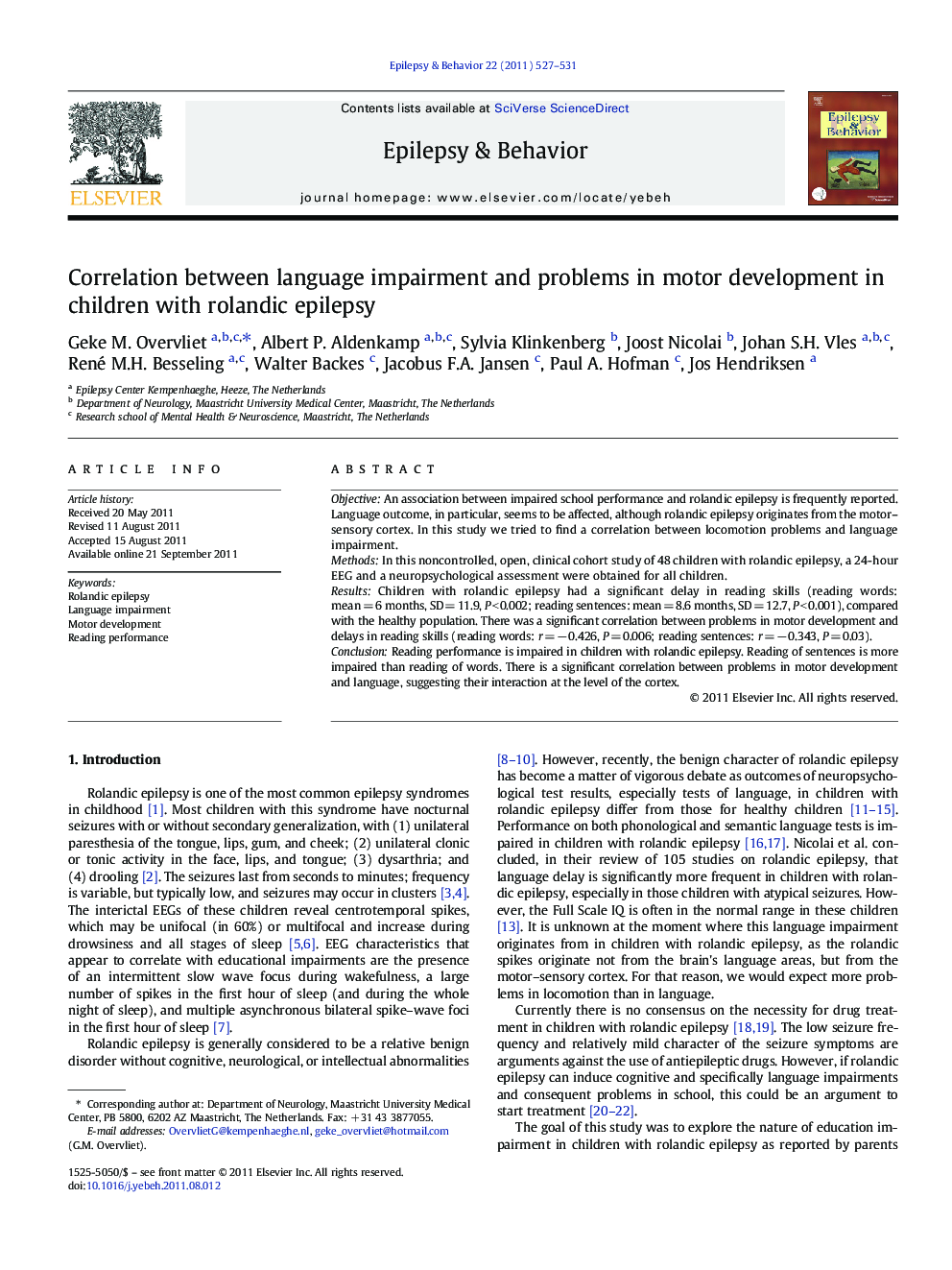| Article ID | Journal | Published Year | Pages | File Type |
|---|---|---|---|---|
| 6014440 | Epilepsy & Behavior | 2011 | 5 Pages |
ObjectiveAn association between impaired school performance and rolandic epilepsy is frequently reported. Language outcome, in particular, seems to be affected, although rolandic epilepsy originates from the motor-sensory cortex. In this study we tried to find a correlation between locomotion problems and language impairment.MethodsIn this noncontrolled, open, clinical cohort study of 48 children with rolandic epilepsy, a 24-hour EEG and a neuropsychological assessment were obtained for all children.ResultsChildren with rolandic epilepsy had a significant delay in reading skills (reading words: mean = 6 months, SD = 11.9, P < 0.002; reading sentences: mean = 8.6 months, SD = 12.7, P < 0.001), compared with the healthy population. There was a significant correlation between problems in motor development and delays in reading skills (reading words: r = â 0.426, P = 0.006; reading sentences: r = â 0.343, P = 0.03).ConclusionReading performance is impaired in children with rolandic epilepsy. Reading of sentences is more impaired than reading of words. There is a significant correlation between problems in motor development and language, suggesting their interaction at the level of the cortex.
⺠Children with rolandic epilepsy had a significant delay in reading skills compared with the healthy population. ⺠There was a significant correlation between problems in motor development and delays in reading skills. ⺠This correlation suggests an interaction of both at the level of the cortex.
